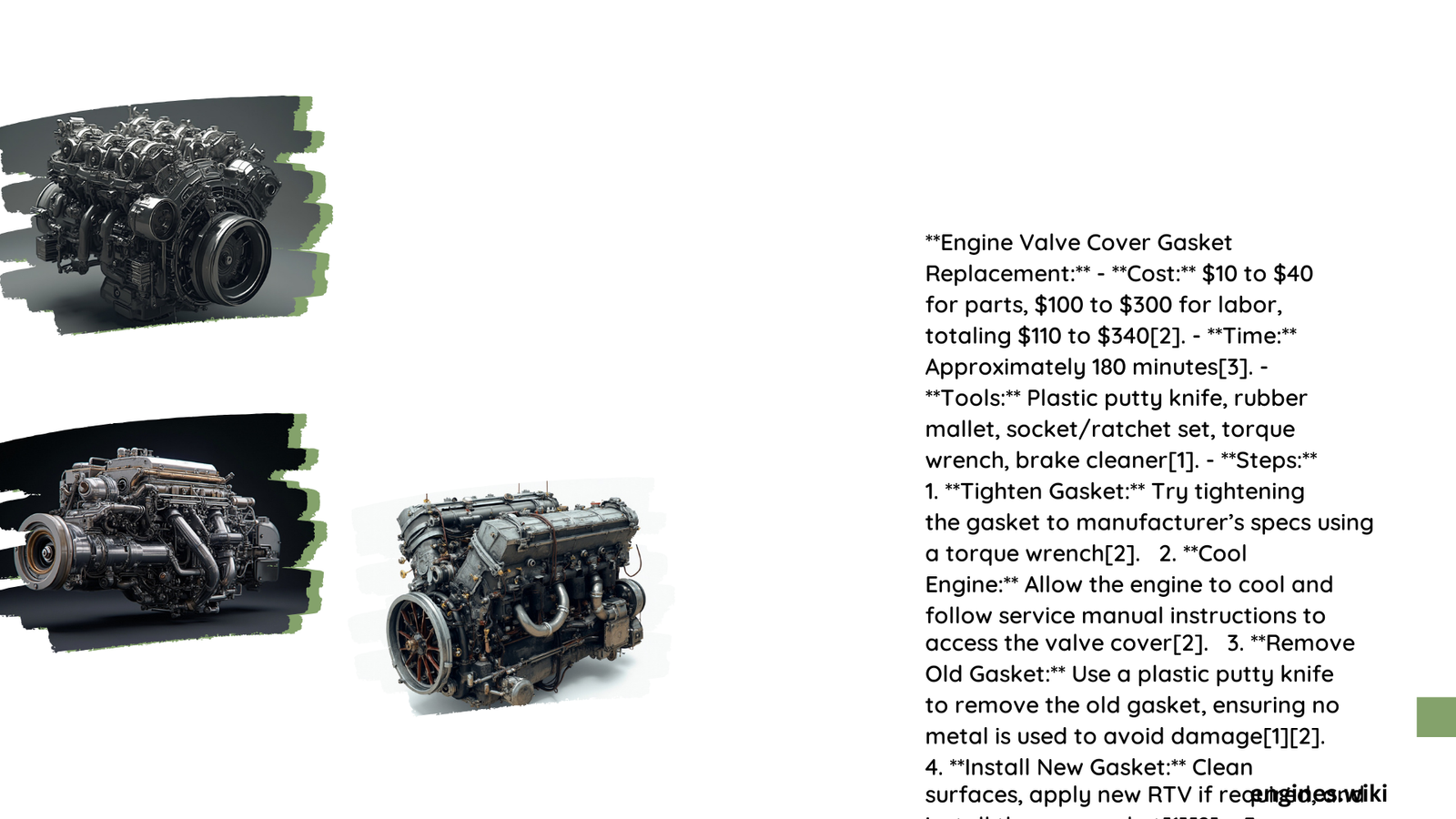Engine valve cover gasket replacement is a critical maintenance procedure that prevents oil leaks, maintains engine performance, and ensures proper sealing between the valve cover and engine block. This intricate process requires precise technical knowledge, specialized tools, and systematic approach to diagnose, remove, and reinstall the gasket without causing additional engine damage.
What Causes Valve Cover Gasket Failure?
Valve cover gasket failure occurs due to multiple factors:
Material Degradation
- Rubber Hardening: Over time, rubber gaskets become brittle
- Heat Exposure: Continuous engine temperature cycles
- Chemical Breakdown: Oil additives and environmental contaminants
Mechanical Stress Factors
- Excessive engine vibration
- Improper initial installation
- Uneven torque application during previous repairs
How to Diagnose Valve Cover Gasket Issues?

Visual Inspection Techniques
- Check for oil accumulation around valve cover
- Inspect for consistent oil droplets underneath vehicle
- Look for dark, oily residue near engine components
Performance Indicators
- Burning oil smell
- Reduced engine performance
- Intermittent engine misfires
What Tools Are Required?
| Tool Category | Specific Tools | Estimated Cost |
|---|---|---|
| Basic Tools | Socket set | $50-$100 |
| Specialty Tools | Torque wrench | $75-$200 |
| Cleaning Tools | Gasket scraper | $10-$25 |
What Are Replacement Steps?
Preparation Phase
- Disconnect battery
- Allow engine to cool completely
- Gather all necessary tools and replacement gasket
Removal Process
- Remove valve cover bolts systematically
- Clean mating surfaces thoroughly
- Inspect for additional wear or damage
Installation Procedure
- Apply thin layer of gasket sealant
- Position new gasket carefully
- Reinstall valve cover with proper torque sequence
What Will Replacement Cost?
Breakdown of Expenses
- Parts Cost: $30-$150
- Labor Cost: $150-$600
- Total Estimated Cost: $180-$750
Factors Influencing Price
- Vehicle make and model
- Local labor rates
- Complexity of engine design
How Long Does Replacement Take?
Time Estimation
- Professional Mechanic: 2-4 hours
- DIY Enthusiast: 4-6 hours
What Are Potential Complications?
Risk Factors
- Improper torque application
- Incomplete surface cleaning
- Using incorrect gasket material
Preventive Measures
- Follow manufacturer specifications
- Use high-quality replacement parts
- Perform regular maintenance
Pro Tips for Successful Replacement
- Always work in well-ventilated area
- Use new bolts if original show signs of wear
- Double-check alignment before final installation
When to Seek Professional Help?
Warning Signs
- Persistent oil leaks after replacement
- Complex engine configurations
- Limited mechanical experience
Reference:
– ASE Certification Resources
– Automotive Repair Guides
– Professional Mechanic Forums
